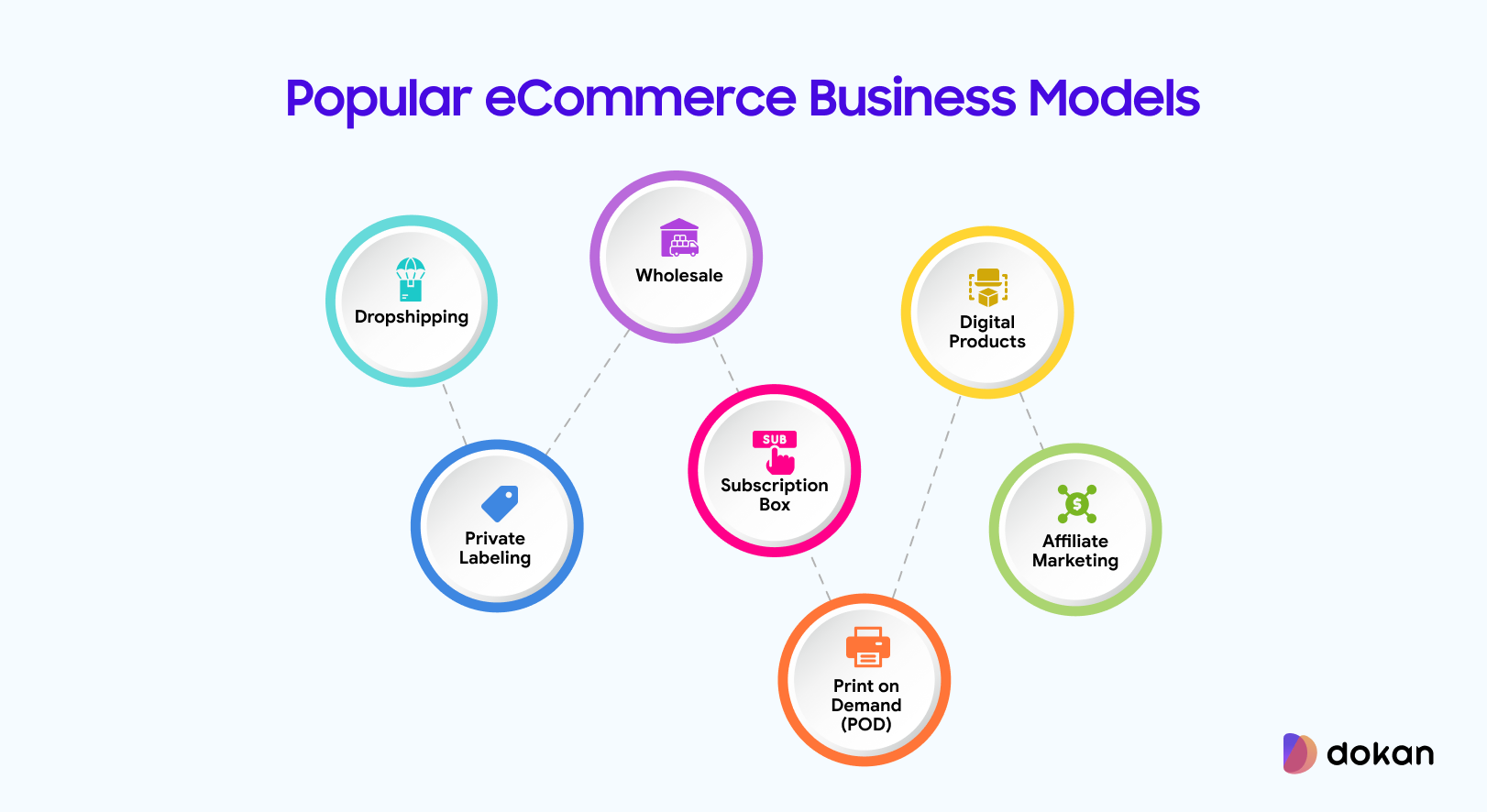Artificial Intelligence (AI) is no longer just a buzzword. It’s an essential tool for eCommerce businesses looking to stay competitive in an increasingly crowded marketplace.
From personalized shopping experiences to improved customer support, AI is transforming how businesses operate and engage with customers.
By integrating AI into your business, you can streamline processes, boost sales, and create a more personalized experience for your customers. The potential of AI is vast, offering solutions that not only improve efficiency but also foster innovation.
By the end of this blog, you’ll have a solid understanding of how AI can elevate your business and drive success in today’s digital-first world.
Lets start-
Advances in Technology and Ecommerce
Technology has always been at the heart of eCommerce growth. But the last few years, we’ve witnessed rapid developments. From the rise of mobile shopping to the evolution of payment systems, and now, the integration of Artificial Intelligence (AI).
These advancements are not only improving the efficiency of operations but are also shaping the future of online shopping for customers.
In recent years, AI has made its way into various aspects of eCommerce. With machine learning, natural language processing (NLP), and data analytics becoming more accessible, AI technologies are being adopted to meet the growing demands of modern consumers.
Businesses that use these technologies can create smarter, more personalized experiences for their customers. They can increase operational efficiency and remain competitive in an ever-changing market.
With AI, eCommerce businesses can automate tasks, analyze customer behavior, and make real-time decisions, all of which lead to enhanced customer satisfaction and increased profits.
AI Is Bringing Change to the Ecommerce Industry
Artificial Intelligence is fundamentally altering the landscape of eCommerce, pushing the boundaries of what’s possible in online retail.
As AI technology advances, it’s playing a more significant role in enhancing how businesses operate and how customers interact with online stores.
Here are a few ways AI is changing the eCommerce industry:
- Personalization: AI algorithms can analyze customer data such as past purchases, browsing habits, and even social media activity to deliver highly personalized shopping experiences. Product recommendations, targeted ads, and customized email campaigns can all be optimized with AI to make customers feel like the store understands their needs.
- Chatbots and Virtual Assistants: AI-powered chatbots have revolutionized customer service in eCommerce. These virtual assistants provide immediate responses to customer inquiries and even assist with completing purchases.
- Predictive Analytics: AI can analyze large volumes of data in real-time, helping businesses predict trends, understand customer behavior, and forecast demand.
- Visual Search and Recognition: Visual search is another groundbreaking AI application in eCommerce. Customers can upload pictures of products they are interested in, and AI-powered systems can find visually similar products on the platform. This improves the customer experience by making it easier for them to find what they’re looking for.
- Dynamic Pricing: AI helps businesses adjust their pricing strategies in real-time based on competitor pricing, market demand, and customer behavior.
Consumers are quickly embracing AI into their lives. As an eCommerce store owner, you should also look at the benefits and use it to your advantage.
Benefits of Using Artificial Intelligence in Ecommerce Companies
Adding Artificial Intelligence (AI) into your eCommerce business can provide numerous advantages, ranging from improved efficiency to enhanced customer satisfaction.

Here are some key benefits AI offers to eCommerce companies:
- Improved Customer Experience: AI enables personalized experiences at scale. By analyzing customer behavior, preferences, and past interactions, AI can offer customized product recommendations, targeted ads, and personalized communication.
- Enhanced Operational Efficiency: AI can automate many routine tasks, such as inventory management, order fulfillment, and customer support. Automation saves time and resources. For instance, AI can forecast demand, ensuring that you maintain the right stock levels and prevent overstocking or stockouts.
- Better Decision-Making with Data: AI uses predictive analytics to process vast amounts of data in real time. This enables you to make informed decisions about pricing, inventory, product placement, and marketing campaigns.
- Cost Savings: By automating tasks like customer service with chatbots or optimizing supply chains through AI-driven analytics, businesses can significantly reduce operational costs.
- Enhanced Marketing ROI: AI tools allow businesses to create highly targeted marketing campaigns based on customer data. By using machine learning to analyze what types of campaigns work best, businesses can fine-tune their marketing strategies for a higher return on investment (ROI).
- Increased Sales and Conversion Rates: With AI-driven recommendations, personalized offers, and targeted pricing strategies, businesses can increase conversion rates.
AI Use Cases in Ecommerce
Artificial Intelligence is being applied in a variety of ways to transform the eCommerce landscape. Here’s how:
- Personalized Product Recommendations: AI analyzes customer data to provide tailored product suggestions. These personalized recommendations increase the likelihood of additional purchases.
- AI-Powered Chatbots: Many eCommerce stores have implemented AI-driven chatbots that assist customers in real time. By offering 24/7 customer service, AI chatbots improve customer satisfaction while freeing up human agents for more complex issues.
- Inventory Management: AI-driven systems can forecast demand by analyzing customer purchase patterns and market trends. This helps businesses manage inventory more effectively, preventing stockouts and reducing overstocking.
- Fraud Detection and Prevention: AI can help detect fraudulent transactions by analyzing customer behavior patterns and transaction data in real time. By identifying unusual activity, AI systems can flag potential fraud before it occurs, reducing chargebacks and increasing security.
- Customer Segmentation: AI helps businesses segment customers based on behavior, demographics, or purchase history. This segmentation enables businesses to create targeted marketing campaigns and personalized offers, improving the effectiveness of their advertising and increasing conversion rates.
Now lets see how to implement AI into eCommerce.
How to Implement Artificial Intelligence Into Ecommerce

Implementing Artificial Intelligence (AI) into your eCommerce business is a game-changer.
While the idea of using AI might seem daunting, breaking the process down into manageable steps can make it easier.
AI isn’t just about fancy algorithms, it’s about leveraging technology to streamline operations, improve customer experience, and drive sales. Here’s a step-by-step guide to help you integrate AI into your eCommerce operations effectively:
1. Identify Key Areas Where AI Can Add Value
Before diving into AI tools, it’s crucial to identify which aspects of your business could benefit the most. AI can be applied in several areas of eCommerce, including:
- Customer Experience: If you’re looking to improve customer engagement, personalization is where AI truly shines. From product recommendations to personalized marketing, AI can help you deliver a tailored shopping experience for each visitor.
- Customer Service: AI-powered chatbots and virtual assistants can provide real-time support to customers, answering their questions, tracking their orders, and resolving issues quickly.
- Pricing & Inventory: Dynamic pricing algorithms powered by AI can adjust product prices in real-time based on factors such as demand, competitor pricing, and inventory levels.
- Marketing and Sales: AI can help you optimize your marketing campaigns, segment customers, and predict trends. AI-powered tools can also help with email personalization, targeted ads, and promotions.
2. Choose the Right AI Tools for Your Business
Once you’ve identified the areas where AI can make the most impact, the next step is to choose the right tools. Here are a few types of AI solutions that are widely used in eCommerce:
- AI Chatbots: Tools like Zendesk, Tidio, or LivePerson allow you to integrate automated chatbots on your website. These bots can provide customer support, answer FAQs, and guide customers through the purchase process, all without human intervention.
- Personalized Product Recommendations: Platforms like Recombee, Dynamic Yield, and Algolia can help you deliver personalized product suggestions based on past purchases, browsing behavior, and other data points.
- Predictive Analytics: AI tools like Google Analytics 4, Salesforce Einstein, and Microsoft Azure allow businesses to forecast trends, customer behavior, and demand. These tools can help you plan your inventory, optimize your marketing efforts, and make data-driven decisions.
- Dynamic Pricing Tools: Solutions like Prisync and Wiser use AI to automatically adjust pricing based on market conditions, competitor prices, and demand. This helps you stay competitive and maximize profit margins.
When selecting tools, ensure they are compatible with your current eCommerce platform (like Dokan Cloud) and that they provide the specific functionalities you need to achieve your business goals.
3. Leverage Customer Data to Drive AI Effectiveness
AI thrives on data. The more data you collect and analyze, the more effective AI becomes. Here’s how you can use customer data for AI implementation:
4. Start Small with AI and Scale Gradually
While AI can seem like a big leap, it’s wise to start small and gradually scale its use in your business:
- Pilot AI in One Area: Begin with one AI-powered solution. For instance, implement a chatbot on your website or start using a recommendation engine for product suggestions. Measure the effectiveness of this tool before adding more complex systems.
- Monitor Results: Track the performance of the AI tool you’ve implemented. Are customers engaging more? Are sales increasing? The data you collect during this phase will help you understand whether your chosen AI solution is working as expected.
- Gradual Expansion: Once you’re comfortable with the initial implementation, gradually expand your use of AI. Add predictive analytics for better inventory management or incorporate AI-powered dynamic pricing. By taking it one step at a time, you avoid overwhelming your team and can ensure a smooth transition.
5. Train Your Team to Use AI Effectively
AI isn’t a “set it and forget it” tool. It requires active management and input. Ensure your team is well-equipped to manage and optimize AI-powered tools:
- Provide Training: Make sure your team understands how to use the new AI tools effectively. This includes knowing how to read and interpret AI-generated reports, adjust settings for better performance, and resolve any issues that arise.
- Collaboration with AI: Encourage your team to view AI as a tool that assists them in their work rather than something that replaces human involvement. For example, AI can analyze data and generate insights, but your team will still need to make decisions based on those insights.
6. Monitor and Optimize AI Performance
AI tools can improve over time, but they still require ongoing monitoring and optimization:
- Review AI Outputs Regularly: Keep track of how well your AI tools are performing. If something isn’t delivering the expected results, it might be time to adjust the settings or switch to a different AI solution.
- Refine Algorithms: AI systems learn and adapt as they process more data. Be sure to fine-tune your algorithms as they gather new information and improve their performance.
- Collect Customer Feedback: Use customer feedback to assess how AI is impacting their shopping experience. Are they finding the personalized recommendations useful? Is the chatbot answering their questions effectively? Customer input helps you improve AI implementations.
7. Ensure Data Security and Compliance
AI requires access to large amounts of data, and it’s critical to safeguard this information:
- Compliance with Data Regulations: Make sure you comply with regulations such as GDPR or CCPA when collecting and using customer data. Implement secure methods for handling sensitive information, and always prioritize customer privacy.
- Data Encryption: Use encryption methods to secure customer data at all stages of processing, ensuring that personal and payment information is protected.
The Final Word
Artificial Intelligence has become a game-changer in the eCommerce industry. It is helping businesses optimize operations, enhance customer experiences, and ultimately boost sales.
As we’ve explored throughout this blog, AI is not just a futuristic technology, it’s already here, and it’s transforming how online businesses operate.
By implementing AI, eCommerce businesses can provide personalized experiences for customers, automate key processes, and make more informed decisions based on data. Whether it’s using AI for product recommendations, dynamic pricing, or customer support, there are countless opportunities to integrate this technology and gain a competitive edge in the marketplace.
To successfully implement AI into your eCommerce operations, start by identifying areas where AI can add the most value, choose the right tools, leverage your customer data, and gradually scale your efforts. Most importantly, ensure that your team is properly trained and that data security is a top priority.
Start small, monitor progress, and keep optimizing, and you’ll soon see the remarkable impact AI can have on your business growth.
Subscribe to
Dokan blog
We send weekly newsletters, no spam for sure!







Leave a Reply